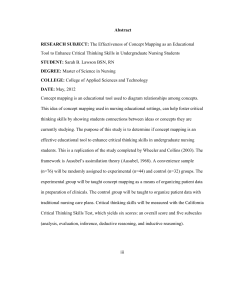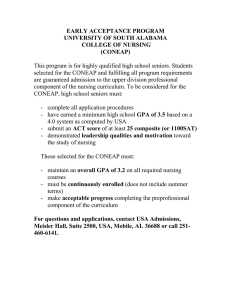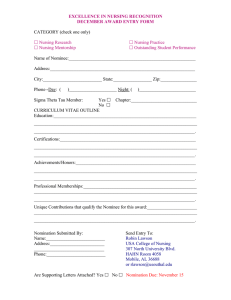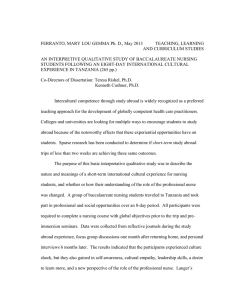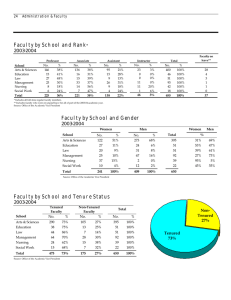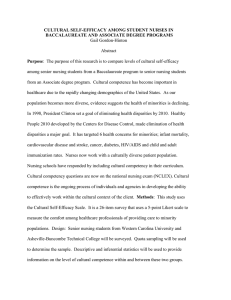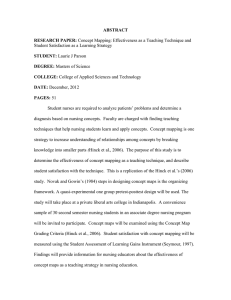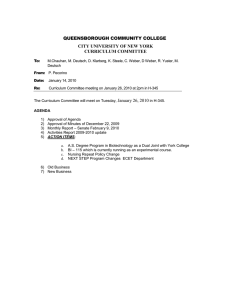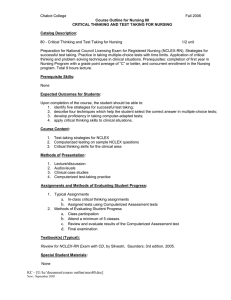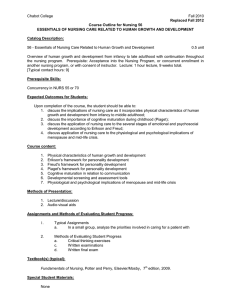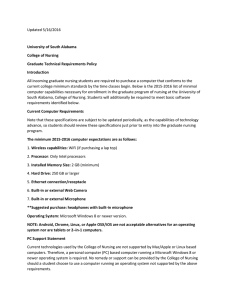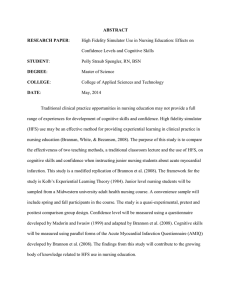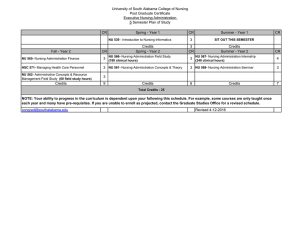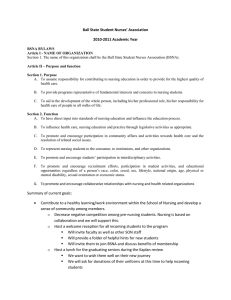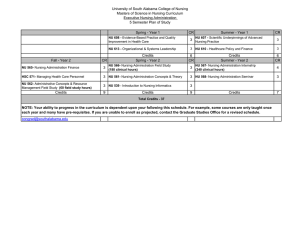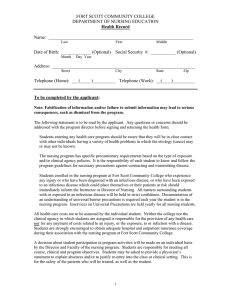ABSTRACT
advertisement
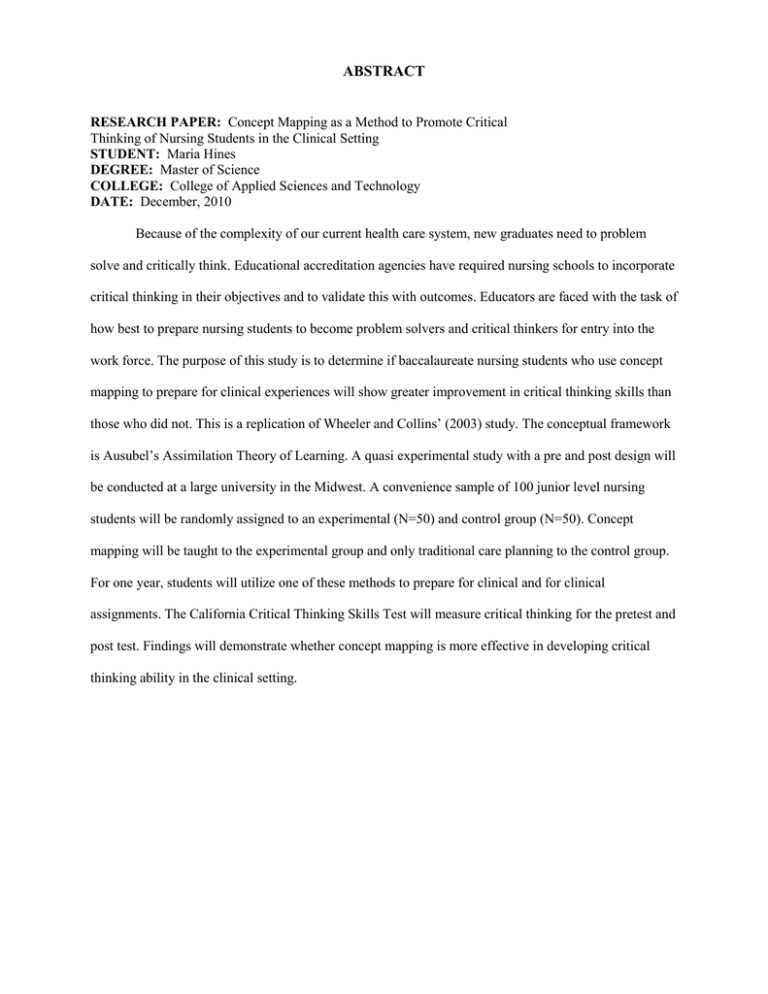
ABSTRACT RESEARCH PAPER: Concept Mapping as a Method to Promote Critical Thinking of Nursing Students in the Clinical Setting STUDENT: Maria Hines DEGREE: Master of Science COLLEGE: College of Applied Sciences and Technology DATE: December, 2010 Because of the complexity of our current health care system, new graduates need to problem solve and critically think. Educational accreditation agencies have required nursing schools to incorporate critical thinking in their objectives and to validate this with outcomes. Educators are faced with the task of how best to prepare nursing students to become problem solvers and critical thinkers for entry into the work force. The purpose of this study is to determine if baccalaureate nursing students who use concept mapping to prepare for clinical experiences will show greater improvement in critical thinking skills than those who did not. This is a replication of Wheeler and Collins’ (2003) study. The conceptual framework is Ausubel’s Assimilation Theory of Learning. A quasi experimental study with a pre and post design will be conducted at a large university in the Midwest. A convenience sample of 100 junior level nursing students will be randomly assigned to an experimental (N=50) and control group (N=50). Concept mapping will be taught to the experimental group and only traditional care planning to the control group. For one year, students will utilize one of these methods to prepare for clinical and for clinical assignments. The California Critical Thinking Skills Test will measure critical thinking for the pretest and post test. Findings will demonstrate whether concept mapping is more effective in developing critical thinking ability in the clinical setting.
